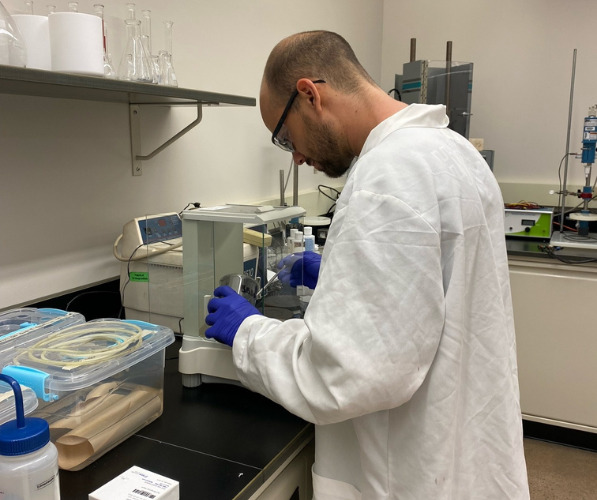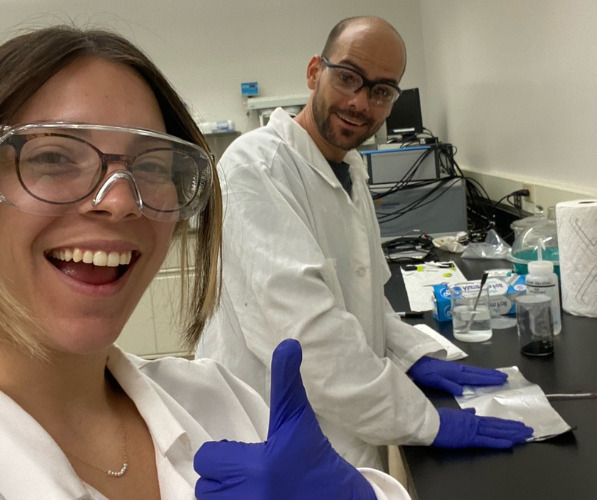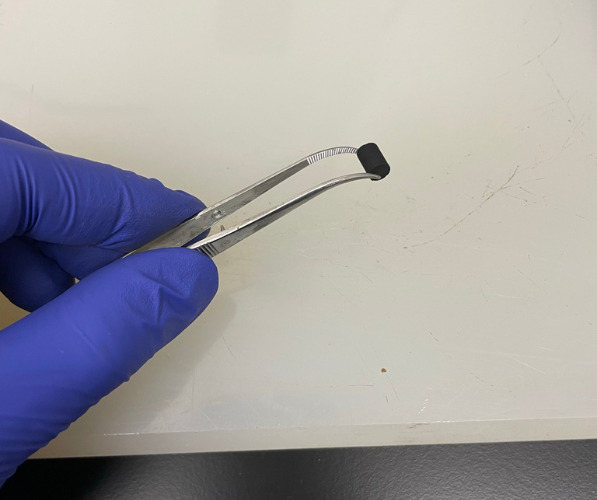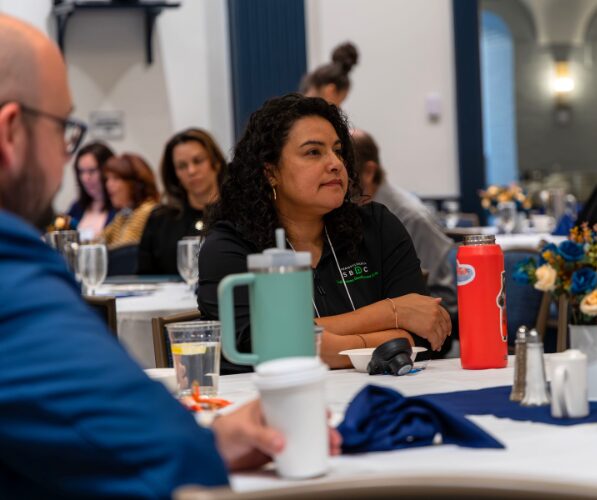Success Story
Graduate research team conducts customer interviews early on through NSF I-Corps Short Course
Domenic Contrino and Gabrielle Giampietro have only just begun their graduate research at Penn State as environmental engineering master’s students – but they have already jumped right in to finding real-world problems their research could solve.
Contrino and Giampietro are researching how to make the carbon electrode components of batteries more efficient, affordable, and sustainable.
Prior to diving too deep into this research, however, Contrino and Giampietro decided to participate in the Invent Penn State NSF I-Corps Short Course program, which helps researchers connect with and interview potential customers to learn what problems companies are facing and what value their research could bring to the table.
“If you are interested in applied research and getting into industry, these customer interviews through I-Corps are where you’ll gain so much more of your background in industry,” Contrino said. “In the past three weeks, I’ve learned more about what people actually care about just from doing the I-Corps program and doing these interviews. You can only read so much on the internet, and getting on the phone with someone who is working in the industry that your research falls under is so valuable.”
Batteries have three components – the positive electrode, the chemical medium, and the negative electrode. Conductive carbon materials are often used in the making of the battery’s electrodes. Contrino and Giampietro are focused on improving the carbons used in the electrodes to convert stored chemical energy into electricity.
Contrino compared the concept to paper towels. A non-name brand paper towel might not pick up as much as the more absorbent name brand paper towels of the same size. Similarly, not all carbon materials are equally effective, and Contrino and Giampietro are trying to improve the carbon components of battery electrodes to match the high-absorbent quality of name brand paper towels. Instead of dirt and grime, however, the electrode is picking up and absorbing more electricity.
The team’s research will involve testing different potential carbon sources like peanut shells, palm fronds, tobacco stem, and other materials that are easily accessible, high in quantity, but usually disposed of.
“And we want to figure out, do these companies care about the electrodes of the battery?” Contrino said. “What type of battery would make the most sense to focus on? With the carbon sources we would be using, it would be cheaper and more sustainable – would that sustainability aspect be intriguing to these companies? That’s what we want to find out.”
Having now completed the short course program, Giampietro said they would like to move forward to the NSF I-Corps National Teams program, once they complete the recommended 20 customer interviews and develop their technology a little more. The NSF I-Corps National Teams program provides teams with $50,000 to assist with customer discovery and to cover the expenses of all team members attending opening and closing workshops.
“For me, doing the National I-Corps program would allow us to continue on this path of fine-tuning our idea to match what people in industry are telling us,” Giampietro said. “We really value the guidance of the teaching assistants from I-Corps keeping us focused and answering our questions. If you create this great idea, it would be a shame for it to just sit in a journal article and not be used. It makes more sense to us to put it to good use.”
Contrino and Giampietro plan to continue to gather data, test alternative carbon sources, and conduct customer interviews to find what problem in the market their technology can best address.
Applications for the September/October 2023 I-Corps Short Course are open. Penn State teams are also welcome to apply to other regional short course offerings from the broader region. Contact the Penn State NSF I-Corps Program Manager, Derek Gross, to find the best solution for your team.
About NSF I-Corps
The NSF I-Corps program uses experiential education to help researchers gain valuable insight into entrepreneurship, starting a business or industry requirements and challenges. I-Corps enables the transformation of invention to impact. The curriculum integrates scientific inquiry and industrial discovery in an inclusive, data-driven culture driven by rigor, relevance and evidence. Through I-Corps training, researchers can reduce the time to translate a promising idea from the laboratory to the marketplace. Penn State is part of the NSF I-Corps Mid-Atlantic Hub, a network of universities, NSF-funded researchers, established entrepreneurs, local and regional entrepreneurial communities, and other federal agencies. Hubs work collaboratively to build and sustain a diverse and inclusive innovation ecosystem throughout the United States.








